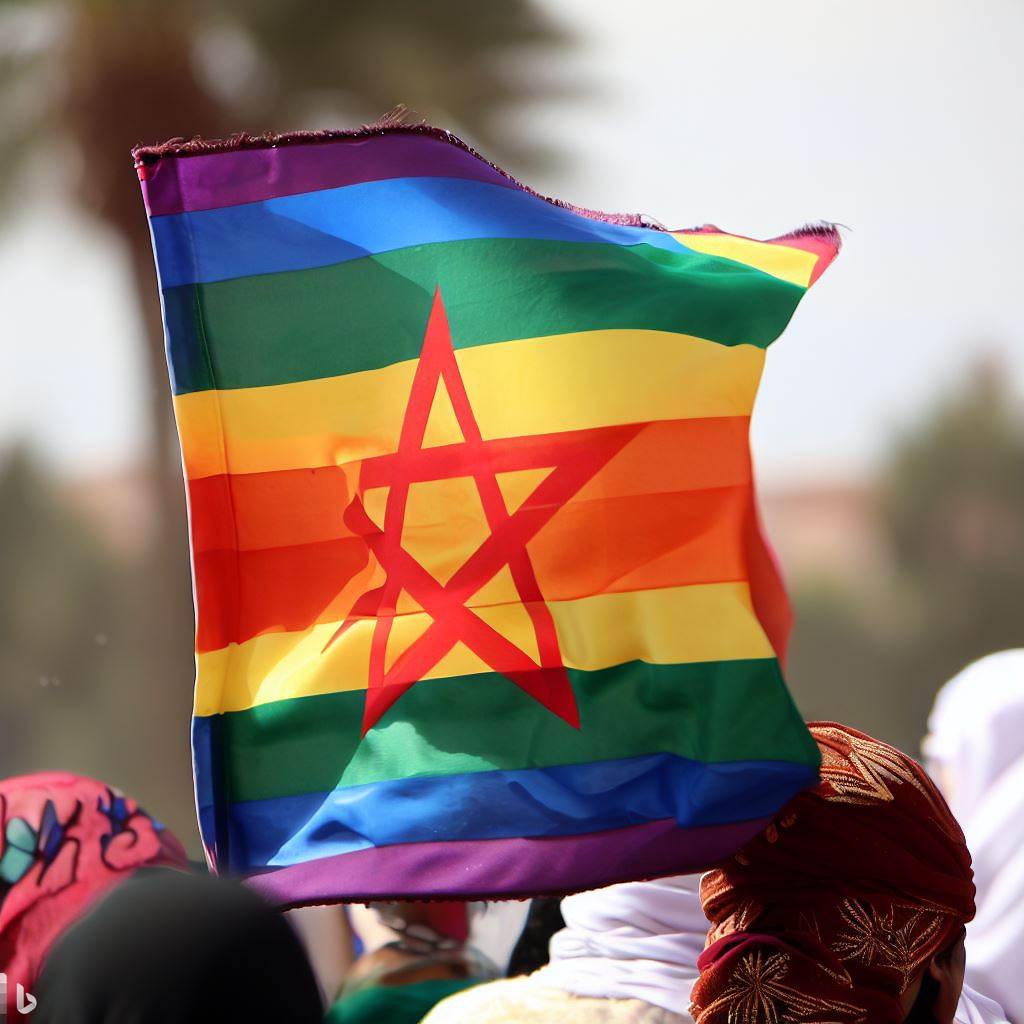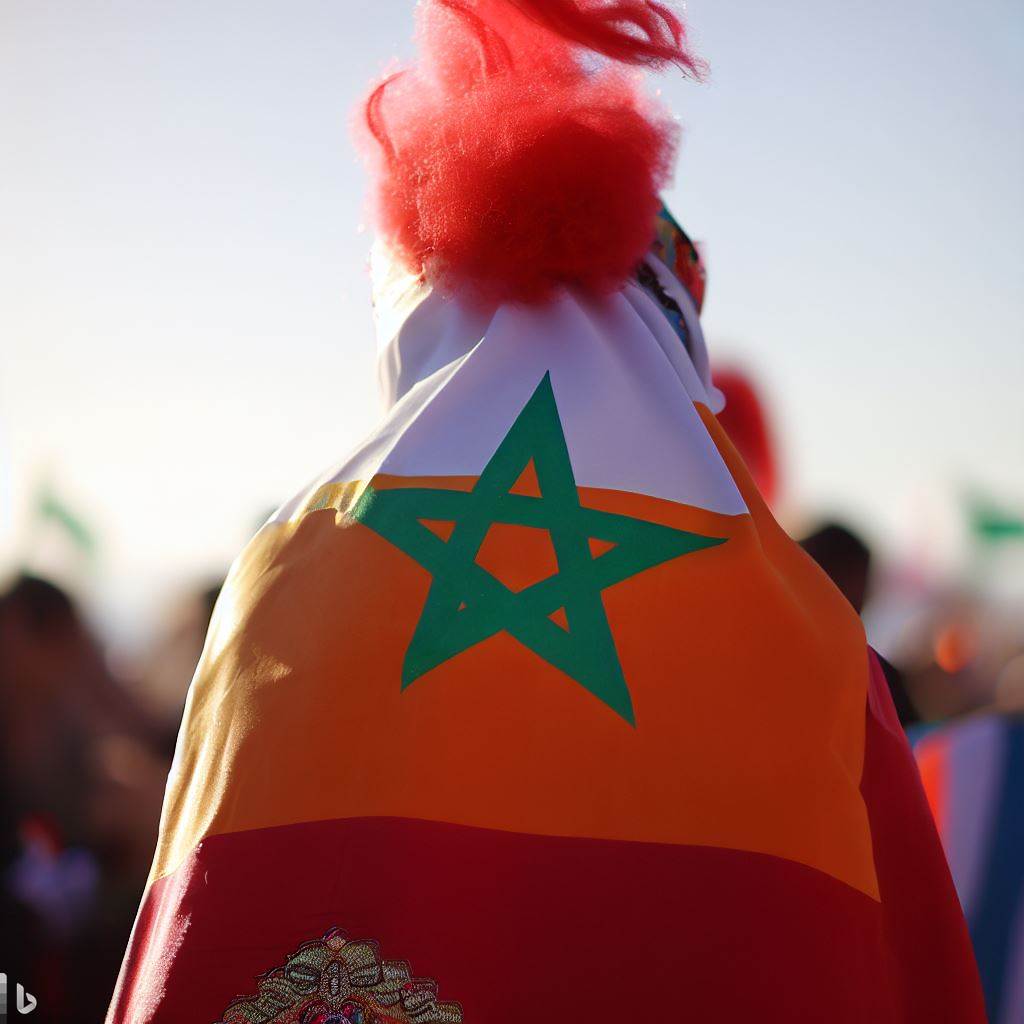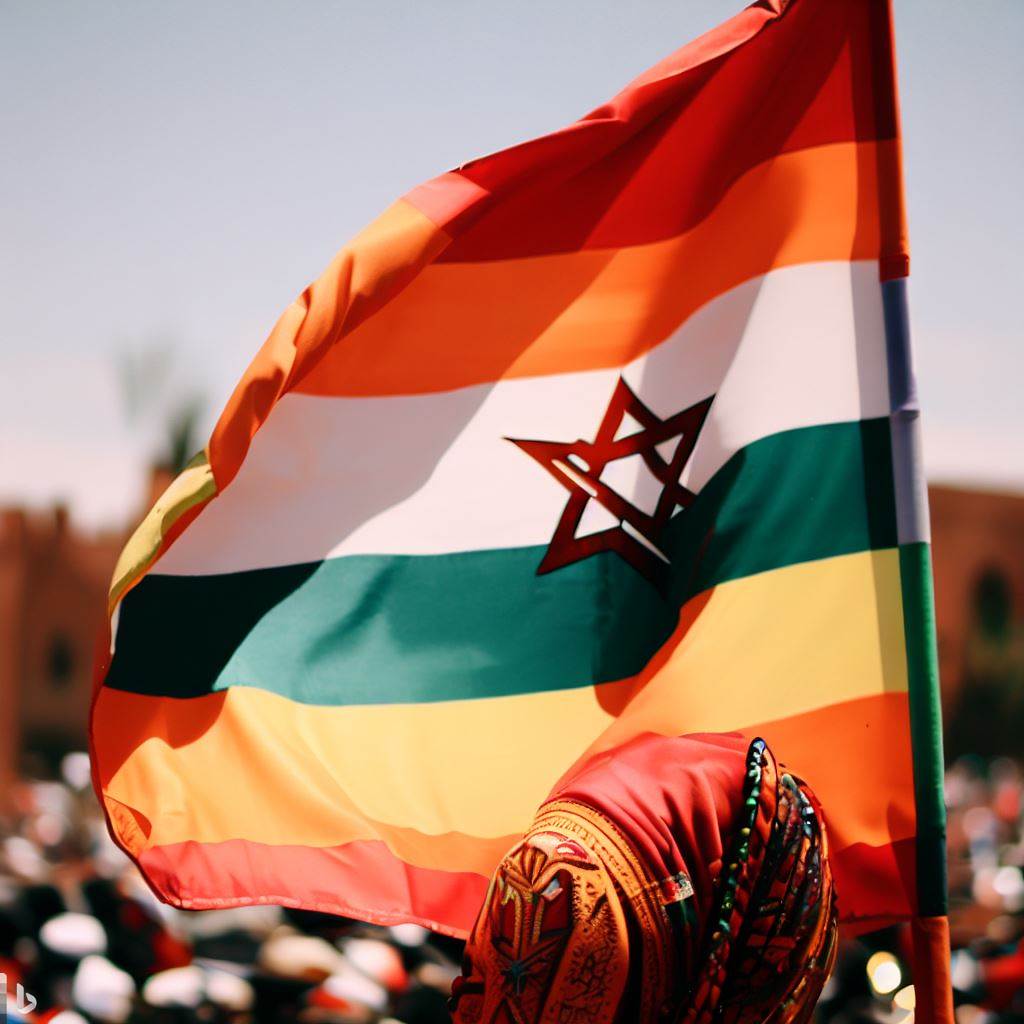
Exploring LGBT Tourism in Morocco: A Deep Dive into Pride Events and the LGBT Community in Agadir
When it comes to LGBT tourism, Morocco presents a complex yet fascinating landscape. This North African nation, known for its rich history, diverse culture, and stunning landscapes, has a multifaceted relationship with the LGBT community. While there are legal and societal challenges, there's also a vibrant undercurrent of acceptance and celebration, particularly in cities like Agadir.
In this comprehensive guide, we'll delve into the heart of LGBT tourism in Morocco, focusing on the city of Agadir. We'll explore Moroccan views on LGBT rights, uncover the reality of Pride events in the country, and address some common misconceptions. Whether you're planning a trip or simply curious about the topic, this article will provide a wealth of insights.
Table of Contents
- Understanding Moroccan Views on LGBT Rights
- Pride Events in Morocco: A Closer Look
- The LGBT Community in Agadir
- Common Misconceptions about LGBT Rights in Morocco
- Key Takeaways
- Conclusion
Understanding Moroccan Views on LGBT Rights
When discussing LGBT rights in Morocco, it's important to note that the country operates under a legal system influenced by Islamic law. Homosexuality is technically illegal, with Article 489 of the Moroccan Penal Code criminalising "lewd or unnatural acts with an individual of the same sex". However, the reality on the ground is far more nuanced than what the law suggests.
While the law is in place, its enforcement varies greatly. In urban areas and tourist hotspots like Marrakech, Casablanca, and Agadir, there's a more liberal attitude towards homosexuality. Many locals in these cities have a live-and-let-live approach, and there's a growing acceptance of the LGBT community, particularly among the younger generation.
However, it's a different story in rural areas and among more conservative sections of society. Here, traditional views hold sway, and there's less acceptance of homosexuality. It's crucial for LGBT travellers to be aware of these differences and navigate their journey in Morocco with sensitivity and respect for local customs and laws.
Legal Challenges and Advocacy
Despite the legal challenges, there are numerous advocacy groups working tirelessly to improve the situation for the LGBT community in Morocco. Organisations like Aswat Collective and Akaliyat are at the forefront of this movement, campaigning for legal reform and providing support for the LGBT community.
These groups, along with international human rights organisations, have been instrumental in bringing attention to the plight of the LGBT community in Morocco. Their work has led to increased visibility and awareness, both within Morocco and globally.
However, progress is slow, and the road to legal reform is fraught with obstacles. But the resilience and determination of these advocacy groups offer a glimmer of hope for a more inclusive future in Morocco.
Societal Views and Acceptance
On a societal level, views on homosexuality in Morocco are evolving. A 2019 survey by the Arab Barometer found that 49% of Moroccans between the ages of 18 and 24 believe that homosexuality should be accepted by society. This is a significant increase from previous years and indicates a positive shift in attitudes, particularly among the younger generation.
However, acceptance is not universal, and there's still a long way to go. Homophobia and discrimination are still prevalent, particularly in rural areas and among older generations. It's a complex issue, with societal views often at odds with legal realities.
Despite these challenges, the LGBT community in Morocco continues to thrive, finding ways to express their identity and celebrate their culture. This resilience is evident in the existence of Pride events and a vibrant LGBT community in cities like Agadir.
Pride Events in Morocco: A Closer Look

Given the legal and societal challenges, one might wonder about the existence of Pride events in Morocco. The reality is that while there are no official, publicly-held Pride parades akin to those in Western countries, the spirit of Pride is very much alive within the Moroccan LGBT community.
Due to legal restrictions, Pride events in Morocco are often held discreetly, in private spaces or online. These events are crucial for the community, providing a safe space for LGBT individuals to express their identity, connect with others, and celebrate their culture.
While these events may lack the grandeur and visibility of Pride parades in other countries, they are no less significant. They represent a form of quiet resistance, a celebration of identity in the face of adversity, and a testament to the resilience of the LGBT community in Morocco.
The Role of Digital Platforms
In recent years, digital platforms have played a crucial role in facilitating Pride events in Morocco. Social media and online forums have become safe spaces for the LGBT community to connect, share experiences, and organise events.
For instance, during the COVID-19 pandemic, when physical gatherings were not possible, many Pride events moved online. These virtual events allowed the community to continue celebrating Pride, despite the challenging circumstances.
While the digital landscape is not without its challenges, it has undoubtedly provided a lifeline for the LGBT community in Morocco, enabling them to maintain a sense of community and solidarity, even in the face of adversity.
Pride Events in Agadir
Agadir, with its liberal atmosphere and thriving tourist industry, is one of the cities where the LGBT community is most visible in Morocco. While there are no public Pride parades, the city hosts a number of discreet events and gatherings for the LGBT community.
These events, often held in private venues or online, offer a space for the community to connect, share experiences, and celebrate their identity. They may not have the visibility of Pride events in other countries, but they are a vital part of the LGBT community in Agadir.
For LGBT travellers, attending these events can be a unique way to experience the local culture and connect with the community. However, it's important to respect the discreet nature of these events and to ensure that your participation does not put local community members at risk.
The LGBT Community in Agadir

Agadir, a bustling city on Morocco's southern Atlantic coast, is known for its beautiful beaches, vibrant nightlife, and welcoming atmosphere. It's also home to a thriving LGBT community, making it a popular destination for LGBT tourists.
Despite the legal challenges, the LGBT community in Agadir has found ways to express their identity and foster a sense of community. From discreet gatherings to online forums, the city offers a variety of spaces where LGBT individuals can connect, share experiences, and support each other.
For LGBT travellers, Agadir offers a unique blend of Moroccan culture and a relatively liberal atmosphere. While it's important to be mindful of local laws and customs, the city provides a welcoming environment for those looking to explore Morocco's rich culture and stunning landscapes.
LGBT-Friendly Spaces in Agadir
While there are no officially designated LGBT venues in Agadir, there are several LGBT-friendly spaces in the city. Many of the city's bars, clubs, and restaurants are known for their welcoming atmosphere and diverse clientele.
These venues offer a safe space for LGBT individuals to socialise and enjoy the city's vibrant nightlife. However, discretion is advised, as public displays of affection, regardless of sexual orientation, are generally frowned upon in Morocco.
For those looking to explore the city's cultural offerings, Agadir's museums, art galleries, and historical sites are also worth a visit. The city's rich history and diverse culture make it a fascinating destination for all travellers.
Travel Tips for LGBT Tourists
When travelling to Agadir, or any part of Morocco, it's important for LGBT tourists to be aware of local laws and customs. While Agadir is more liberal than other parts of the country, homosexuality is still technically illegal in Morocco.
Discretion is advised, particularly in public spaces. Public displays of affection, regardless of sexual orientation, are generally not accepted in Moroccan culture. It's also recommended to avoid discussing your sexual orientation or gender identity in public, as this can attract unwanted attention.
Despite these challenges, Agadir offers a unique and rewarding travel experience. With its beautiful beaches, vibrant culture, and welcoming atmosphere, it's a destination that's well worth exploring. For more travel tips, check out our Travel Hacks and Travel Essentials Reviews.
Common Misconceptions about LGBT Rights in Morocco
When it comes to LGBT rights in Morocco, there are several misconceptions that often cloud the reality. Here, we aim to debunk some of these misconceptions and provide a more nuanced understanding of the situation.
Misconception 1: Homosexuality is Universally Condemned in Morocco
While it's true that homosexuality is technically illegal in Morocco, it's not universally condemned. Attitudes towards homosexuality vary greatly across the country, with more liberal views often found in urban areas and tourist hotspots like Agadir. Many Moroccans adopt a live-and-let-live approach, and there's a growing acceptance of the LGBT community, particularly among the younger generation.
Misconception 2: There are No Pride Events in Morocco
While Morocco does not host public Pride parades like those in Western countries, the spirit of Pride is very much alive within the LGBT community. Pride events are often held discreetly, in private spaces or online, providing a crucial space for LGBT individuals to express their identity and celebrate their culture.
Misconception 3: There is No LGBT Community in Morocco
Despite the legal challenges, there is a vibrant LGBT community in Morocco. This community, while often discreet, finds ways to express their identity, support each other, and advocate for their rights. Cities like Agadir are home to a thriving LGBT community, making them popular destinations for LGBT tourists.
Understanding these misconceptions is crucial for a more nuanced and accurate view of LGBT rights in Morocco. It's a complex issue, with legal realities often at odds with societal attitudes and the lived experiences of the LGBT community.
Key Takeaways
Exploring LGBT tourism in Morocco, particularly in cities like Agadir, reveals a complex yet fascinating landscape. Here are some key takeaways from our deep dive into this topic:
Legal vs Societal Views
While homosexuality is technically illegal in Morocco, societal views are more nuanced. There's a growing acceptance of the LGBT community in urban areas and among the younger generation, despite the legal challenges.
Pride Events
While there are no public Pride parades in Morocco, the spirit of Pride is alive within the LGBT community. Pride events, often held discreetly or online, provide a crucial space for LGBT individuals to express their identity and celebrate their culture.
LGBT Community in Agadir
Agadir is home to a vibrant LGBT community and is a popular destination for LGBT tourists. Despite the legal restrictions, the city offers a welcoming environment and a variety of LGBT-friendly spaces.
Travel Tips
For LGBT tourists travelling to Morocco, discretion is advised. It's important to respect local laws and customs, while also enjoying the rich culture and stunning landscapes that the country has to offer. For more travel tips, check out our Travel Hacks.
Conclusion
Exploring LGBT tourism in Morocco offers a window into a complex and fascinating landscape. Despite the legal challenges, there's a vibrant undercurrent of acceptance and celebration, particularly in cities like Agadir. The resilience of the LGBT community in the face of adversity is truly inspiring, as they continue to express their identity, celebrate their culture, and advocate for their rights.
For LGBT travellers, Morocco offers a unique and rewarding travel experience. While it's important to be mindful of local laws and customs, cities like Agadir provide a welcoming environment and a chance to explore Morocco's rich culture and stunning landscapes. Whether you're planning a trip or simply curious about the topic, we hope this guide has provided valuable insights into LGBT tourism in Morocco.
Remember, travel is about more than just seeing new places. It's about expanding our understanding of the world, challenging our preconceptions, and connecting with diverse cultures and communities. So, whether you're booking your flight via Agadir Flights or Flight Plan Book, or finding the best hotel deals on Booking.com, remember to travel with an open mind and a respectful attitude. Safe travels!



